7 ‘Conscious’ Steps to Improve Your Competence Levels
The conscious competence learning model takes its name from ‘conscious competence,’ one of the four psychological states that occur in learning, AKA stages of competence, or levels of competence. Whatever field they’re working in, everyone passes through these stages as we learn new skills and develop existing ones.
So, spend a few minutes reading this and see how this model can make it easier for trainers and learners alike to understand what’s happening as they learn. All in all, it highlights the importance of awareness, practice, and conscious effort in developing competencies and skills. From there, understanding the stages of competence helps learners in all kinds of work effectively navigate their personal and professional growth.
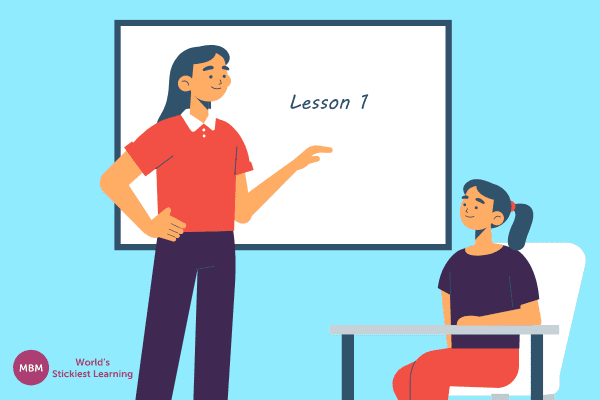
The Conscious Competence Model – a Map to Guide Your Skills Development
In this article we look at the four stages of competence and how to use the conscious competence model to support your own learning and that of others. Furthermore, we end with 7 ‘conscious’ steps you can take to improve your competence, and that of your team.
While we’re here, step #7 in the list is, to talk to the trainers. At Making Business Matter, we have over 20 years of experience helping people to be the best possible versions of themselves. So, after you read this article, check out our very popular Making Business Matter Coaching Cards. Or why not call us for a chat about how we can help you and your team with training in core skill areas?
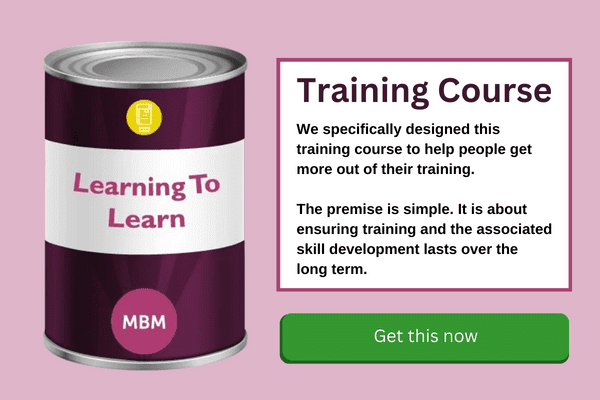
Do You Need To Learn New Skills, Or Brush Up on Existing Ones? Start Your Journey Here
The conscious competence model helps you identify what you know, and what you need to know, but currently don’t. So, let’s begin by exploring this idea of conscious competence, and the thinking that’s grown up around it.
What Does ‘Conscious Competence’ Mean?
Well, conscious competence is the psychological stage in learning where the learner has acquired the elements of a skill and has reached a certain level of competence. However, they’re ‘conscious’ that to go further, they need to focus on practising and perfecting it. This calls for concentration and a sense of involvement.
Sticky Learning ® is 7 times more effective than 1-day training courses. Plus, you will get a Chain of Evidence proving your Return on Investment. Discover soft skills training that changes behaviours long term.

Developing Competence is a ‘Conscious’ Journey…
When you start learning to do a task, you may be unaware, or ‘unconscious,’ of the extent of your lack of knowledge. You may even be unaware of your need to have it. As you go on, you become ‘conscious’ of areas for improvement, and what you specifically need to work on. This awareness helps you concentrate on ‘consciously’ improving your skills until you’re competent enough to perform them ‘unconsciously’ – meaning, without having to think too hard about what you’re doing.
Is Conscious Competence the Same Journey For Everyone?
In a word, yes! As people learn new skills and improve existing ones, they progress through much the same stages, irrespective of the task or discipline:
- Novice
- Advanced Beginner
- Competent/Proficient
- Expert
This brings us to…
What Are The 4 Stages of Competence?
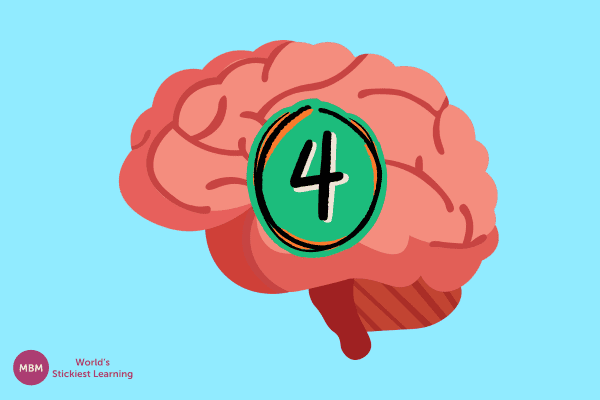
The four stages of competence are essentially the same as the four levels of competence and four levels of skill. Different people prefer different terms, but they mean much the same thing.
The four stages of competence are:
1. Unconscious Incompetence:
The learner doesn’t know how to do something but isn’t aware they have a skill or knowledge gap and they need to address it.
2. Conscious Incompetence:
Here, the person is aware they have a skill or knowledge gap and understands the importance of acquiring the new skill or improving an existing one. This awareness is necessary to start learning a skill successfully or developing it.
3. Conscious Competence:
The learner knows how to use the skill or perform the task, but doing so requires conscious thought and practice, or they can get rusty and fall back into incompetence.
4. Unconscious Competence:
At this stage, the learner has enough experience in the skill to perform it so easily that they do it unconsciously.
What is Unconscious Competence, and Can You Give An Example?
You reach the stage of unconscious competence when you’ve had so much practice with a skill that it’s become second nature. In fact, you may even perform the task while carrying out another one. A classic example is driving a car, where you change gear manually while thinking about other things. However, you’re likely to have an accident if you drive without due care and attention, so you still need to concentrate.
The same thing applies to work. What you’re doing may come so easily to you that you don’t focus on it, and you make mistakes – which proves you aren’t as competent as you thought.
Moving From Ignorance to Mastery
Here’s another way to think of the four stages of competence:
- Unconscious incompetence = Ignorance.
- Conscious competence = Awareness.
- Conscious competence = Learning.
- Unconscious competence = Mastery.
What is The Hierarchy of Competence?
The 4 stages of competence can also be presented as a hierarchy, in the form of a pyramid:
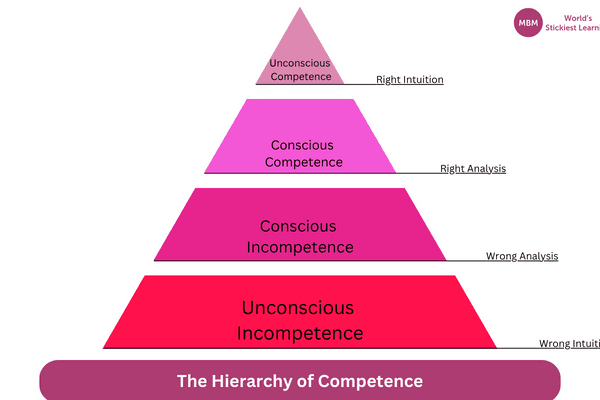
Conscious Competence Theory – Where Did It Come From?
The four stages of competence as we know them were first mentioned in the 1960 textbook ‘Management of Training Programmes’ by Frank A. De Phillips, William M. Berliner, and James J. Cribbin. The management trainer Martin M. Broadwell called the model “the four levels of teaching,” in an article published in 1969.
From there, Paul R. Curtiss and Phillip W. Warren mentioned the conscious competence model in their 1973 book, ‘The Dynamics of Life Skills Coaching.’ Noel Burch used the model, and portrayed it as the Hierarchy of Competence shown earlier, in his work in the 1970s at Gordon Training International, where it was called “the four stages for learning any new skill.”
What is the Conscious Competence Ladder?
This is another way to portray the stages of competence, which Noel Burch also developed at Gordon Training:
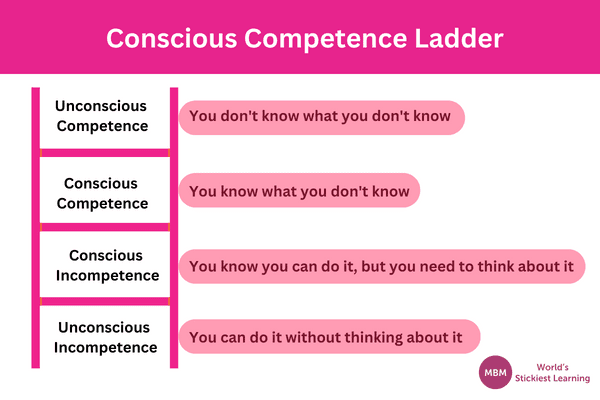
What is The Conscious Competence Matrix?
Also used by Noel Burch in the 1970s, the Conscious Competence Matrix is another way of showing the 4 stages of competence. It presents the four stages as a square made up of four smaller squares, with consciousness on the vertical axis and competence on the horizontal axis.
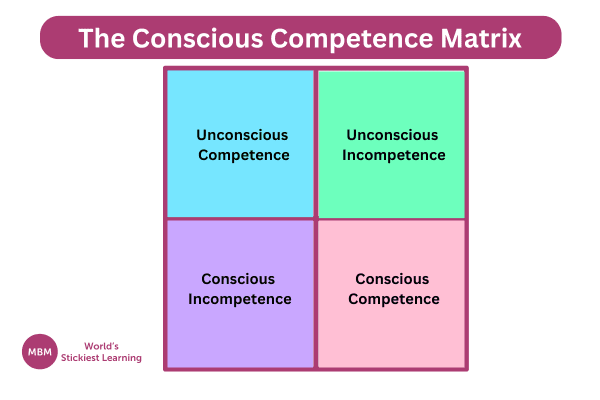
Are You Consciously Competent Yet About the Conscious Competence Model?
There’s a lot to take in, so here’s a quick refresher, with some short summaries of the four stages:
- Unconscious incompetence: You don’t know what you don’t know.
- Conscious incompetence: You know what you don’t know.
- Conscious competence: You know you can do it, but you need to think about it.
- Unconscious competence: You can do it without thinking about it.
You might also find this helpful:
Unconsciously incompetent learners don’t feel they need to master a skill. Consciously incompetent learners are more motivated to engage in learning. Someone consciously competent might just need to polish their skills. An unconsciously competent person is an expert, and might become even more skilled through training, or helping train, others.”
How to Use The Conscious Competence Model to Support Your Learning, and That of Others
Now it gets practical. The conscious competence model takes the pain out of learning, by making the learner see it’s a process that will benefit them. It enables trainers and managers too, to understand the emotions their people may be feeling during training, and support them.
Training can be hard work, and you want your people to feel good about themselves, and less tempted to give up the battle, or worse, leave. The model helps turn a defeatist “I’m never going to learn this!” into “I will learn how to do this,” and even, “I’m going to enjoy it.”
All in all, the key to progress is recognising where you are in learning a skill, committing to doing so, and not feeling anxious about how you’re doing. Knowing where you’ve got to go, you can identify specific learning needs and develop appropriate learning goals and objectives.
Hey, This Seems to Be Only About Functional Skills And Tasks! How Does The Conscious Competence Model Apply to Management?

Well, that’s a very good question! Actually, unconscious incompetence, where people don’t know what they don’t know, can be devastating when it occurs in leadership and management.
There can be serious consequences impacting many people when individuals running businesses feel excessively confident, and overestimate their competence in new or unfamiliar areas. This is called the Dunning-Kruger effect, where people don’t realise how unskilled they really are.
The experts say it’s a psychological phenomenon, rather than a personality disorder like narcissism, which is a relief because it means people in this situation are more inclined to do something about it when they realise, rather than deny it.
However, the fact is, we all have gaps in our skills and knowledge, and we have cognitive biases too that make us go by what we believe is true, rather than check it out – even CEOs! The conscious competence model can help establish our areas for improvement.
At the other end of the spectrum, you often hear of successful people who have plenty of valuable skills and know a great deal about their specialist area, but still doubt their abilities. They don’t believe they know what they know. Even though they really do know it.
So, people who take on a new role and then feel they have ‘imposter syndrome,’ will benefit from the assurance that comes from knowing what skills they have. If you feel like a fraud doing your job, this will help you be certain of the evidence to the contrary. Your feelings of inadequacy and self-doubt will reduce – because you will know for sure, that you do know what you know!
S.T.E.P. – 4 Focus Points For Managers To Boost Your Team’s Competence
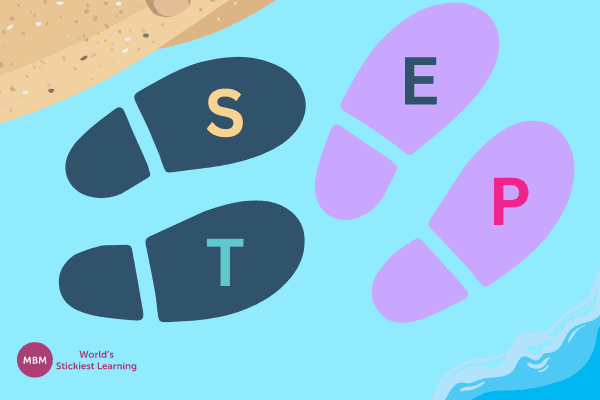
If you’re a manager, you might find these four ‘S.TE.P.’ focus points helpful:
- Self-reflection: Get team members to analyse their performance and set goals that you review regularly. In between, encourage your team to pause and reflect on progress.
- Trust: In getting your team members to admit to areas where they could improve, they’re making themselves vulnerable, and might feel they’re making themselves open to criticism. It’s important to create an environment of mutual trust, where team members feel supported and comfortable.
- Empathy: Don’t just listen to the team when they talk about the areas they’ve identified for improvement. Show them you’re on a journey too. Make them feel heard and understood. Understand where they see themselves, and what they want to improve.
- Professional Development: Encourage team members to learn and cultivate new skills, identifying strengths and areas for improvement.
People Need Different Kinds of Support at Different Stages of Competence
So, here’s a rule of thumb guide, to help your skills development:
- Advanced beginner (Consciously incompetent): Practise affirmations – tell yourself I can do this. Ask for feedback. Work on your self-confidence.
- Competent/proficient (Consciously competent): Practise your skills. Spend a few minutes a day thinking about how the day went. Above all, be honest with yourself, and keep a note of areas where you need improvement.
- Expert (Unconsciously competent): You’ve got this! Teach other people, by all means, but don’t take your own skills for granted. You can always improve, and remember – you don’t know what you don’t know!
7 ‘Conscious’ Steps To Improve Your Competence
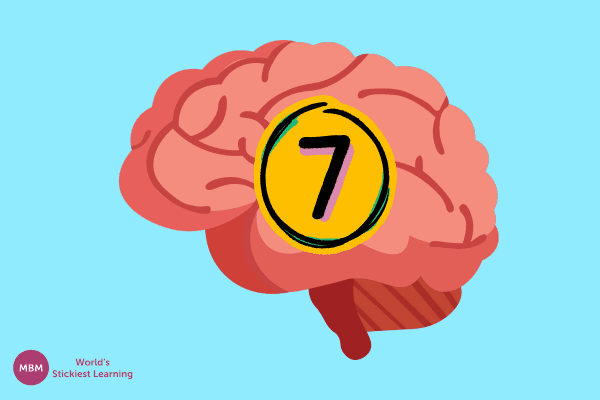
Each of us has lots of different skills that we use at work. Here’s the thing. Thinking about personal development and planning your next career move involves knowing your skills and prioritising particular areas of strength. So, as promised at the beginning, here are 7 steps that individuals can take to improve their competence, and managers can talk through with their reports:
1. Carry Out a Personal ‘SWOT’ Analysis, and ‘RAW’ Into Action:
- Recognise your level of competence in each skill area/the skills you need to work on, the training you need and the specific knowledge you need to catch up on.
- Assess the skills you need to work on, the training you’d like to have, and the subjects you need to catch up on.
- Work on your weaknesses.
2. Follow the Job Market:
Well, even if you’re not thinking of changing jobs just yet, you need to make sure you stay “current”! So, keep an eye on the job market through online notifications, LinkedIn etc and see what skills they’re asking for. Interview yourself, and see how you measure up, and then go back to step 1.
3. Think About Skills Matching:
Actually, this is harder to pin down. Where do you see yourself in five years? What skills do you need to learn, to help you achieve your personal work goals?
4. Peer Pressure:
Who’s doing well in your peer group at work? Identify the skills your colleagues have, that you don’t currently, but that you could realistically acquire – and importantly, you want to.
5: Feedback:
Okay, so we’ve said this before, but it’s crucial. Ask for feedback, and be generous about giving it. This is a sure way to be realistic about your competence, and help others to be about theirs.
6. Review and Improve:
Make a habit of thinking back over the day. Furthermore, be self-critical, but kind to yourself too. And encourage your reports to do the same.
All in all, that pretty much covers everything there is to say about the conscious competence model and how to apply it. However, when it comes to actual skills training, there’s one more step you need to take:
7. Talk to the Trainers:
As we said at the start, at Making Business Matter, we have over 20 years of experience helping people to be the best possible versions of themselves. Moreover, we’ve developed ways for you to put our experience to work in your office, whenever you want, with our very popular Making Business Matter Coaching Cards. Check them out.
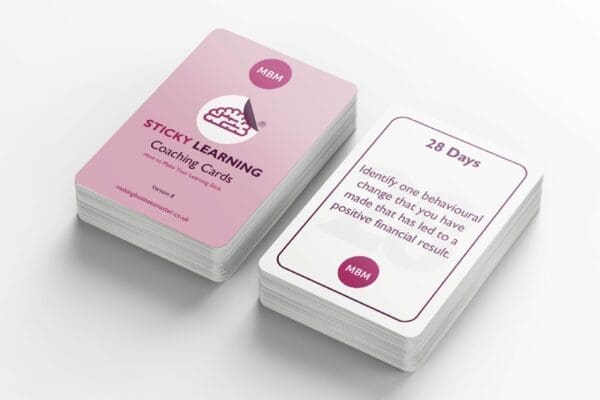
Remember, we’re here for you. So, why not call us for a chat about how we can help you and your team with training in a variety of core skills areas? Speak soon!
- Tel: 0333 247 2012
- Email: helpme@makingbusinessmatter.co.uk
Or use the form on our Contact Us Page.




